News
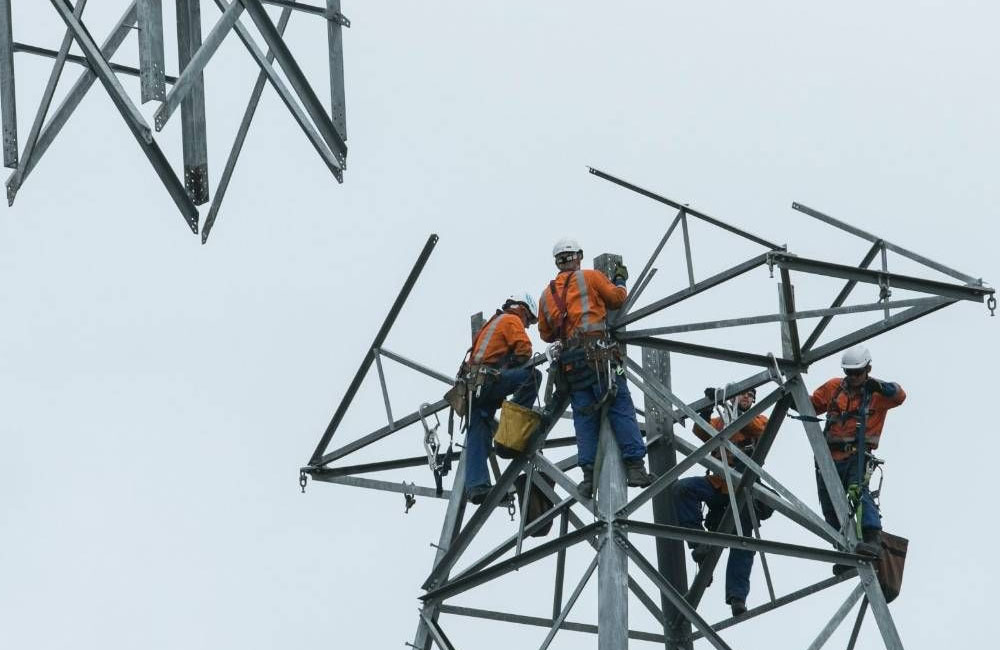
CEB trade unions threaten TU action after O/L exams
Trade unions of the Ceylon Electricity Board (CEB) have once again cautioned the government that they would resort to trade union action as soon as the GCE Ordinary Level examinations conclude, if solutions are not provided to their eight demands and if the liquidation of the CEB is gazetted.
They stated that if a wrong decision is taken for unlawful restructuring without listening to their demands, they would be compelled to take this decision within the next 48 hours, even unwillingly.
The unions further said that if employee issues and energy concerns are ignored, and if a proper energy policy is not established, but instead a gazette notification is issued arbitrarily, they will definitely take this decision without further notice.
They stressed that this serious decision could gravely affect the country and its citizens, and that the government must bear full responsibility.
The CEB unions added that they are not prepared to carry out such action while children are sitting for the GCE Ordinary Level examinations, and that their restraint is only because the exams are being held.
This was stated at a press conference held in Colombo yesterday (23 Feb) by representatives of the CEB Engineers’ Union, including Executive Committee Member Engineer Sandaruwan Manchanayake; Deputy Chairman of the Technical Engineers and Officers’ Union, Nandana Udaya Kumara; Chairman of the Electrical Technicians’ Union, Kosala Abeysinghe; and General Secretary of the Independent Workers’ Union, Prabath Priyantha.
The warning comes after employees who have applied for the Voluntary Retirement Scheme (VRS) of the CEB recently stated that the CEB Chairman has confirmed the Gazette notification announcing the dissolution of the Board will be issued on February 28.
They had been further informed that the Government will ensure that compensation payments to employees who choose retirement will be disbursed without complications.
(Source:Newswire)
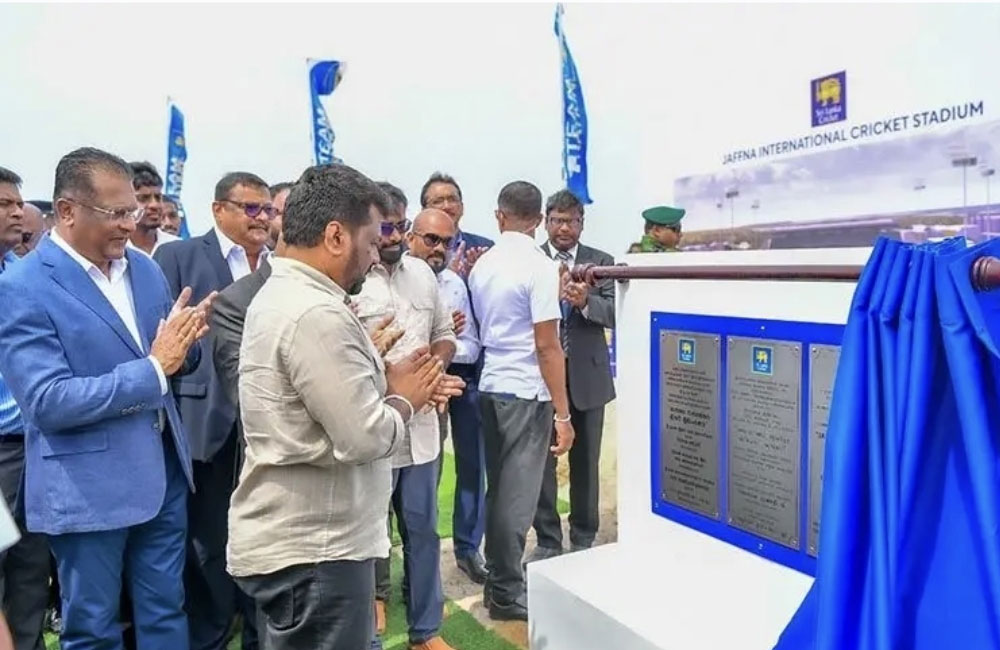
Construction of Jaffna International Cricket Stadium Suspended Over Missing Environmental Clearance
Construction activities on the planned international cricket stadium in Mandaitivu, Jaffna, have been temporarily stopped after it was found that the required Environmental Impact Assessment (EIA) had not been approved.
According to Central Environmental Authority Sri Lanka Chairman Tilak Hewawasam, instructions have been issued to suspend all ongoing work until the necessary environmental evaluation is completed and official approval is obtained. The decision was taken after authorities confirmed that environmental clearance had not been secured before construction began.
The project was initiated last year, with the foundation stone laid by President Anura Kumara Dissanayake as part of plans to establish the first international cricket stadium in Northern Sri Lanka.
Mandaitivu Island, where the stadium is being built, is recognized as an environmentally sensitive region. The area includes important coastal ecosystems such as mangroves, wetlands, salt marshes, mudflats, and seagrass habitats. The project site is located close to the Mandaitivu Mangrove Reserved Forest and falls within a zone classified as highly sensitive under regional environmental guidelines.
Environmental organizations have previously warned that large-scale infrastructure projects in the area could harm fragile ecosystems and threaten biodiversity if proper safeguards are not enforced.
The proposed stadium is part of a broader initiative to develop Mandaitivu Island into a sports hub with international-level facilities. The long-term plan includes additional developments such as a swimming complex, indoor sports facilities, hotels, residential apartments, retail outlets, and entertainment venues.
The stadium construction is planned in four stages, with the initial phase focused on preparing the ground and pavilion to accommodate domestic cricket matches. Work is expected to resume once all environmental requirements are fulfilled and approval is granted by relevant authorities.

Fisherman Arrested in Maggona for Illegal Madel Fishing Using Tractor-Mounted Winches
A fisherman was taken into custody yesterday (23) for illegally conducting seine net (Madel) fishing using tractor-mounted winches, authorities confirmed.
The suspect was apprehended by officers from the Kalutara District Fisheries Office while actively operating the equipment near the Kudawa Fisheries Harbour.
During the operation, officials also seized two tractors fitted with winches that were being used in the unlawful fishing activity. The arrested individual, who is a resident of Maggona, is expected to be presented before the Kalutara Magistrate’s Court for legal proceedings.
This arrest follows recent tensions within the fishing community over the government’s prohibition on using tractor-mounted winches for Madel fishing. Earlier this month, a group of fishermen staged a Satyagraha protest outside the Presidential Secretariat, urging authorities to lift the restriction.
The protest, which began on February 5, continued for nine days before it was called off after discussions between fishermen’s representatives and Anura Kumara Dissanayake on February 13. Authorities have not yet announced any changes to the existing ban, and enforcement actions remain ongoing.

Afternoon Showers Forecast; Rough Seas Expected Due to Low-Pressure System
The Department of Meteorology Sri Lanka has predicted mainly fair weather across much of the island today, with rain expected in selected areas after 2.00 p.m.
Showers or thundershowers are likely to develop in parts of the Southern Province, as well as in the districts of Ratnapura, Monaragala, and Kalutara during the afternoon hours. The public has been advised to take precautions against localized strong winds and lightning that may accompany thundershowers.
Meanwhile, a low-pressure system situated over the Bay of Bengal, northeast of Sri Lanka, is gradually moving in a northeasterly direction and is expected to weaken further. However, its influence could still result in heavy showers or thundershowers and strong winds reaching speeds of 50–60 kmph in certain areas.
As a result, sea conditions may turn rough at times. Naval personnel and fishing communities have been urged to remain alert.
Rain or thundershowers may also occur in sea areas extending from Galle to Pottuvil via Hambantota during the evening or night. Winds around the island’s coastal waters are expected to be north-westerly, with speeds ranging between 20 and 40 kmph.
Overall, sea conditions will be moderate, but temporarily strong gusts and very rough seas can occur during thundershowers, according to the department.
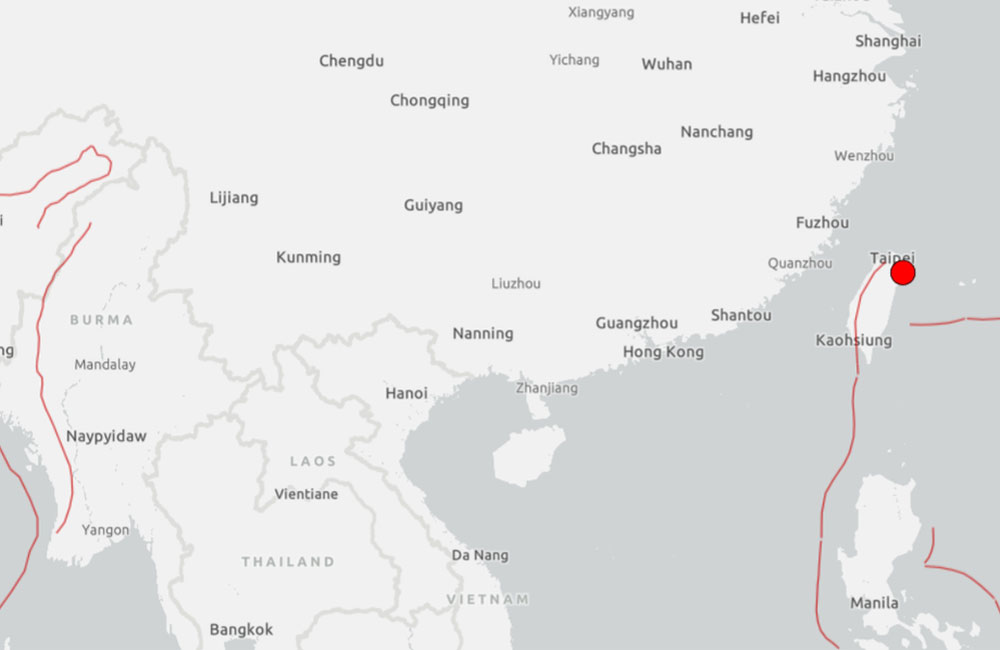
Taiwan rattled by 5.6 magnitude quake, no reports of damage
A 5.6 magnitude earthquake struck just off the coast of Taiwan’s northeastern county of Yilan on Tuesday, the island’s weather administration said, with no reports of damage.
The quake briefly shook buildings in the capital, Taipei. The quake had a depth of 66.8 km (41.5 miles), the weather administration said.
The fire department said the quake’s epicentre was 16.9 km (10.5 miles) from the county government seat and in coastal waters.
Taiwan lies near the junction of two tectonic plates and is prone to earthquakes.
More than 100 people were killed in a quake in southern Taiwan in 2016, while a 7.3 magnitude quake killed more than 2,000 people in 1999.
Source:adaderana.lk

Oxford, Cambridge Unions cancel Namal Rajapaksa speaking events
The Oxford Union has cancelled a planned speaking event featuring Sri Lanka Podujana Peramuna (SLPP) MP Namal Rajapaksa, following backlash from Tamil student groups and campaigners.
The Cambridge Union had previously cancelled his scheduled appearance, citing security concerns linked to planned protests.
According to UK student newspaper Cherwell, Oxford Union President Katherine Yang said the decision was taken after concerns were raised about students’ ability to participate freely.
“A core part of the Union’s purpose is enabling direct, open questioning from students. In this case, a significant number of the students most closely connected to the subject matter communicated that they did not feel safe asking questions openly,” Yang was quoted as saying.
She added that while alternative formats were considered, the inability of those most affected to participate directly undermined the substance of the forum.
“An event where key stakeholders cannot engage on equal footing does not produce the kind of robust debate the Union is intended to facilitate,” she said.
Rajapaksa is currently on a visit to the United Kingdom and earlier paid homage at the London Buddhist Vihara, which is marking its 100th anniversary this year.
Diaspora advocacy group Tamil Solidarity had called on both unions to cancel Rajapaksa’s scheduled speaking engagements, arguing that providing him a platform amounted to political rehabilitation. The organisation also warned of protests if the events proceeded.
Tamil Solidarity, established in 2009, campaigns on issues related to alleged war crimes, accountability and the rights of Tamil-speaking people.
(Source:Newswire)
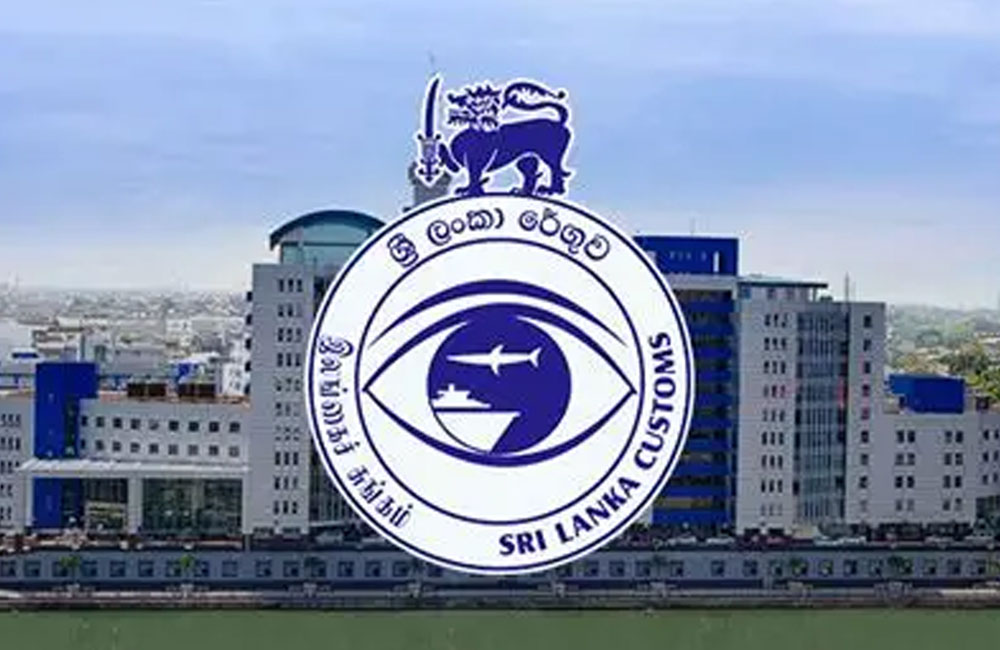
Customs Officers Begin Trade Union Action Over Long-Pending Promotions
The Customs Trade Union Alliance has initiated trade union action beginning today (24), highlighting several outstanding concerns that remain unaddressed, including long-delayed promotions.
Union representatives stated that these matters have been repeatedly brought to the attention of relevant authorities over the past six years, but no satisfactory solutions have been reached.
As part of the initial phase of industrial action, Customs officers across all offices islandwide will report to duty wearing black armbands as a mark of protest.
Meanwhile, a special meeting involving the Ministry of Finance Sri Lanka, the Public Service Commission Sri Lanka, and other stakeholders has been scheduled for February 26, 2026, to discuss the issues raised by the union.
Following the outcome of that discussion, representatives of the Customs Trade Union Alliance are expected to convene on February 27 to determine their next steps regarding further industrial action.

EU says it will accept no increase in US tariffs after Supreme Court ruling: ‘a deal is a deal’
The European Commission demanded on Sunday that the United States stick to the terms of an EU-U.S. trade deal reached last year, after the U.S. Supreme Court struck down Donald Trump’s global tariffs and he responded with new levies across the board.
The Commission, which negotiates trade policy on behalf of the 27 EU member states, said Washington must provide “full clarity” on the steps it intends to take following the court ruling.
After the court struck down Trump’s global tariffs on Friday, the U.S. president announced temporary, across-the-board tariffs of 10%, which he then hiked to 15% a day later.
“The current situation is not conducive to delivering ‘fair, balanced, and mutually beneficial’ transatlantic trade and investment, as agreed to by both sides” in the joint statement setting out the terms of last year’s trade agreement, the Commission said. “A deal is a deal.”
The comments were far more strongly worded than the Commission’s initial response on Friday, which had said only that it was studying the outcome of the Supreme Court decision and keeping in contact with the U.S. administration.
Last year’s trade deal set a 15% U.S. tariff rate for most EU goods, apart from those covered by other sectoral tariffs such as on steel. It also allowed zero tariffs on some products such as aircraft and spare parts.
The EU agreed to remove import duties on many U.S. goods and withdrew a threat to retaliate with higher levies.
“In particular, EU products must continue to benefit from the most competitive treatment, with no increases in tariffs beyond the clear and all-inclusive ceiling previously agreed,” the EU executive said, adding that unpredictable tariffs were disruptive and undermined confidence across global markets.
It said that EU Trade Commissioner Maros Sefcovic had discussed the issue with U.S. Trade Representative Jamieson Greer and Commerce Secretary Howard Lutnick on Saturday.
Source:Adaderana.lk

Suspect Arrested in Batapola with Stolen Motorcycle Using Fake Number Plates
Officers from the Sri Lanka Police have taken a suspect into custody in the Batapola area of Galle after uncovering a stolen motorcycle concealed inside a residence.
The operation was conducted by the Galle Divisional Crime Investigation Bureau following intelligence received about the hidden vehicle. During the raid, police recovered a motorcycle that had been fitted with falsified number plates.
The suspect, a 30-year-old resident of Ethkandura, was arrested at the location.
Initial inquiries revealed that the motorcycle had been reported stolen in 2024 within the Karandeniya Police Division. Further investigations also indicated that the suspect had links with individuals believed to be involved in organized criminal activities.
Authorities are continuing their investigation to determine whether the stolen motorcycle had been used in any criminal offences.
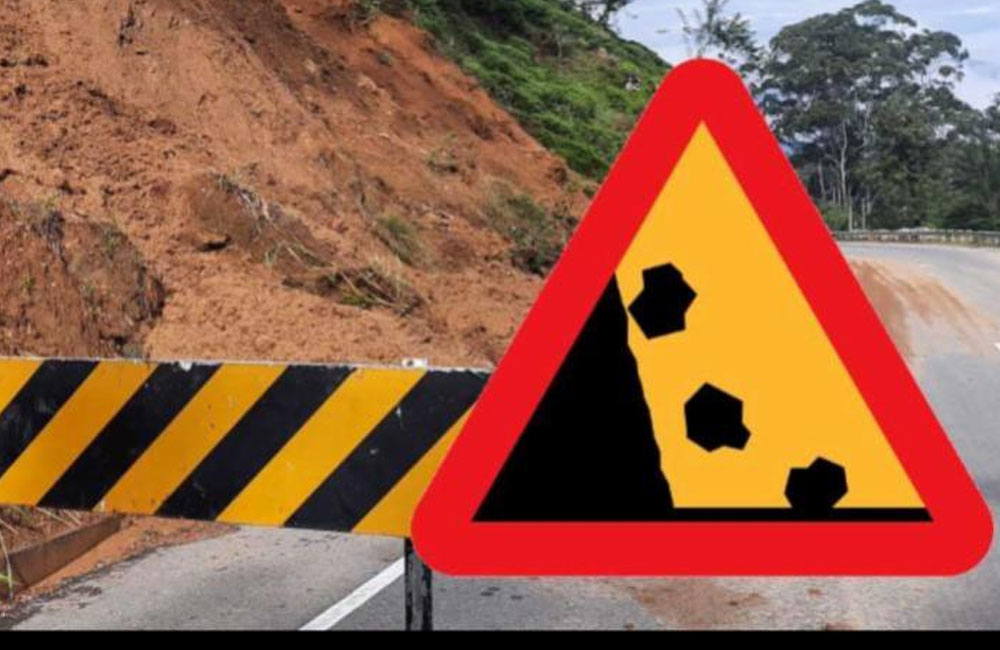
NBRO Lifts Red Landslide Alerts; Amber and Yellow Warnings Still Active in Several Districts
The National Building Research Organisation has removed the previously issued Red-level landslide warnings for several districts after observing a decline in rainfall over the past 24 hours.
NBRO scientist Suminda Ratnayake explained that the decision was made after evaluating recent weather patterns and updated forecasts, which indicated an improvement in conditions.
Despite the removal of the highest-level warning, Level 2 (Amber) alerts, urging residents to remain alert, are still in place for several Divisional Secretariat divisions. These include Yatinuwara, Doluwa, Ududumbara, Ganga Ihala Korale, Pathadumbara, and Medadumbara in Kandy District; Yatiyanthota, Kegalle, Dehiowita, Aranayaka, and Mawanella in Kegalle District; Rattota, Ambagamuwa Korale, Laggala Pallegama, Wilgamuwa, and Ukuwela in Matale District; Walapane, Ambagamuwa, and Nildandahena in Nuwara Eliya District; Kalawana, Ayagama, Kiriella, and Ratnapura in Ratnapura District; Badalkumbura in Monaragala District; Haldummulla in Badulla District; and Niyagama in Galle District.
In addition, Level 1 (Yellow) warnings, advising vigilance, have been issued for 23 Divisional Secretariat divisions across the districts of Badulla, Galle, Hambantota, Kandy, Kegalle, Kurunegala, Matale, Monaragala, Nuwara Eliya, and Ratnapura.
Dr. Ratnayake cautioned that although rainfall has reduced, the ground in previously affected areas remains heavily saturated. He warned that even light showers could trigger landslides, rockfalls, or earth slips. Residents and travelers in vulnerable areas have been urged to stay alert, monitor official advisories, and take precautionary measures to ensure their safety.

Storm paralyzes travel, forcing more than 8,000 US flight disruptions
U.S. airlines are set to add flights on Tuesday, even as they wrestle with thousands of scrubbed flights the day after a powerful Northeast winter storm forced more than 8,000 cancellations and delays.
The storm blanketed parts of the U.S. Northeast, closing roads and cancelling schools.
With cancellations frustrating travelers on Monday evening, U.S. carriers including United Airlines UAL.Osaid they had early plans to ramp up operations on Tuesday, but cautioned that conditions remain challenging.
On Tuesday, 7% of U.S. flights are expected to be cancelled, down from just over 19% on Monday, according to data from analytics firm Cirium as of late afternoon. A typical day in the U.S. domestic market has 1% cancellations.
Southwest Airlines LUV.Nsaid its plan “is on track to start ramping up operations tomorrow, if conditions permit us to safely do so.”
The Dallas-based low-cost carrier canceled about 7% of flights on Monday. That was less than its rivals due to the carrier’s limited Northeast exposure.
American Airlines AAL.O said it had been able to resume operations at Washington Reagan National and Philadelphia.
Delta DAL.N and American both said they expect to resume operations at New York’s LaGuardia and JFK airports and Boston late on Tuesday morning. Delta also expects to resume Newark flights on Tuesday.
JetBlue JBLU.O was especially hard hit, canceling about 80% of flights due to the storm on Monday, according to data from FlightAware. The airline said in total it has cancelled 1,600 flights through Wednesday.
U.S. passenger railroad Amtrak canceled dozens of trains between New York and Boston and on other routes in the Northeast. Several states ordered motorists to remain off roads for non-essential travel for extended periods due to the significant snowfall.
American, Delta and United all canceled about 20% of flights on Monday.
The blizzard dropped more than 2-1/2 feet of snow (76.2 cm) across parts of the U.S. Northeast.
Source:adaderana.lk

New York, other US states under state of emergency as snow falls amid blizzard warning
New York, New Jersey, Connecticut and Massachusetts governors issued state of emergency orders and a halt to non-essential travel as a major storm was expected to bring up to 24 inches of snow and strong winds to the region.
• Around 15,247 flights were delayed by early afternoon on Sunday, and 3,509 were cancelled. The largest number of cancellations were at JFK, La Guardia and Newark airports.
• New York City Mayor Zohran Mamdani ordered the closure of city streets to non-essential vehicular traffic, including bicycles and scooters, from 9 p.m. Sunday to 12 p.m. Monday and closure of all school buildings.
• Similar restrictions were adopted by Connecticut, as Governor Ned Lamont banned commercial vehicles on highways in the state from 5 p.m. on Sunday.
• Massachusetts Governor Maura Healey has declared a state of emergency and activated up to 200 National Guard members to help. The state also restricted non-essential travel from Sunday evening.
• New York Governor Kathy Hochul activated 100 National Guard members to deploy in Long Island, New York City and the Lower Hudson Valley.
Source:adaderana.lk
Page 5 of 680